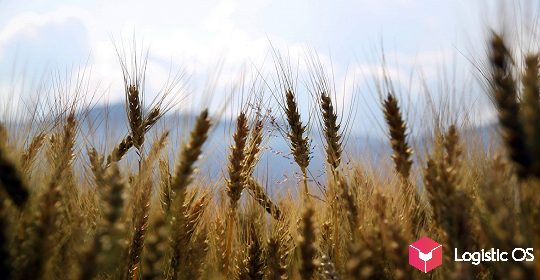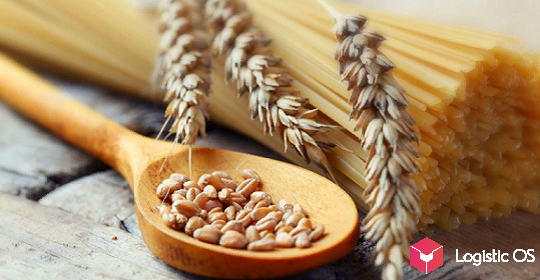According to the Union of Grain Exporters, this year the export rates lag behind last year by about 20%.
According to the statement of Russian President Vladimir Putin, the supply of grain produced in the territory of the Russian Federation abroad is difficult due to sanctions, including hidden ones.
However, growth rates are picking up gradually, and the Ministry of Agriculture expects that growth rates will be maintained.
This opinion was expressed by Deputy Minister Oksana Lut at an expanded meeting of the State Duma on agrarian issues. It is planned that until the end of the year the export growth rate will remain at the level of 15-17%.
At the same time, the department confirms the forecast for this year: it is assumed that agro-industrial products will be exported in general for $40 billion.
This is more than the value of last year: then the volume of exports amounted to about 37 billion tons.
True, as Lut noted, there is a drawdown in the volume of natural exports by about 9%, but thanks to the high prices for such products on the world market, it is even possible to achieve an excess of last year’s result in monetary terms.
We need to export 60 million tons of grain
Approximately 150 million tons of grain have been produced in Russia this season.
Of these, about 80 are needed for domestic consumption, but everything else needs to be taken abroad.
Although this is difficult due to sanctions, an action plan has already been drawn up with all key exporters. Export is planned both to the EAEU countries and to far abroad countries.
At the same time, there are no plans to limit supplies to Kazakhstan, although this topic was considered.
The fact is that this country buys Russian grain, and then resells it at a premium to other states. However, in the end, we decided not to do anything.
Firstly, this year there is a good harvest in Siberia — and the closest and cheapest way is to take it to Kazakhstan.
Secondly, under the sanctions, Kazakhstan somewhat facilitates the work of Russian exporters, since it independently resolves the issues of deliveries to some countries where it can be difficult to directly import Russian grain.
Price growth may stop
As Alexander Korbut, vice-president of the Russian Grain Union, noted, most likely, in the near future, there is no need to expect an increase in prices for agricultural products in the world.
The UN FAO index has been going down for several months in a row, some positions — for example, sunflower oil — have fallen sharply in price.
Despite all this, Russia is quite capable of getting good export earnings this year, even though sometimes grain in foreign markets has to be sold at a discount.

